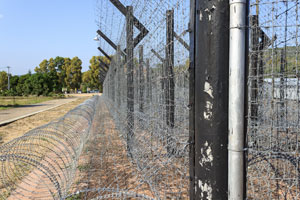A district court judge has decided to exclude the testimony of an expert on interrogations and false confessions in the trial of a prison dental instructor who has been charged with unlawful sexual conduct with female inmates.
The Alleged Misconduct
Women inmates from the Topeka Correctional Facility have accused their former dental lab instructor of inappropriate sexual conduct. The women claim that Tomas Co, 73, flaunted his authority over them, touched their breasts and vaginas without their consent, and compelled one of them to massage his penis to ejaculation.
Mary Ostrander, a special agent with the Kansas Department of Corrections, interviewed 25 inmates about their experiences with Co. The women were participants in a program that was designed to teach them a marketable skill upon release. Co was a dental instructor who was tasked with training the inmates on how to make dentures. Some inmates told Ostrander that they feared that they would lose their certification if they objected to Co’s behavior.
Following Ostrander’s interviews with Co’s students, he was fired from his position. He was then charged with seven charges of unlawful sexual relations with seven different inmates.
The Proposed Expert Testimony
Chris Joseph, Co’s defense attorney, filed an expert witness disclosure letting the prosecution know that he intended to call Professor Alan Hirsch to testify on Co’s behalf. Joseph said that Hirsch is a nationally recognized expert on police interviews and interrogations, including the “Reid Technique,” which is a method of police interrogation. Joseph argued that the Reid Technique could affect the reliability of statements made by someone who was questioned utilizing that method.
According to his website, Hirsch is a Yale Law School-educated attorney and writer who has focused his career on false confessions. He has been retained as an expert in approximately 200 states, and has been qualified as an expert in Alaska, Arizona, Colorado, Connecticut, the District of Columbia, Florida, Georgia, Indiana, Kentucky, Maine, Massachusetts, Michigan, Mississippi, Montana, New Hampshire, North Carolina, Ohio, South Carolina, Tennessee, Vermont, Virginia, and Washington.
The prosecution filed a motion to exclude Hirsch’s testimony. Shawnee County District Court Judge Cheryl Rios granted the motion.
Under Kansas law, judges “must assess on a case-by-case basis whether expert testimony will be helpful to the jury” and expert testimony is only admissible “if it will be of special help to the jury on technical subjects (with) which the jury is not familiar or if such testimony (will) assist the jury in arriving at a reasonable factual conclusion from the evidence.”
Judge Rios reasoned that the case was not factually complex and that “[i]t is well within the jury’s ability to determine whether the witnesses in this case made false accusations against the defendant and whether techniques used to question these witnesses resulted in false accusations.”
Judge Rios wrote, to allow the expert opinion testimony “would invade on the field of common knowledge and experience of the jury,” the judge wrote. She also stated that cross examination, persuasive argument and cautionary instructions by the defense will provide safeguards against unreliable witness testimony.




